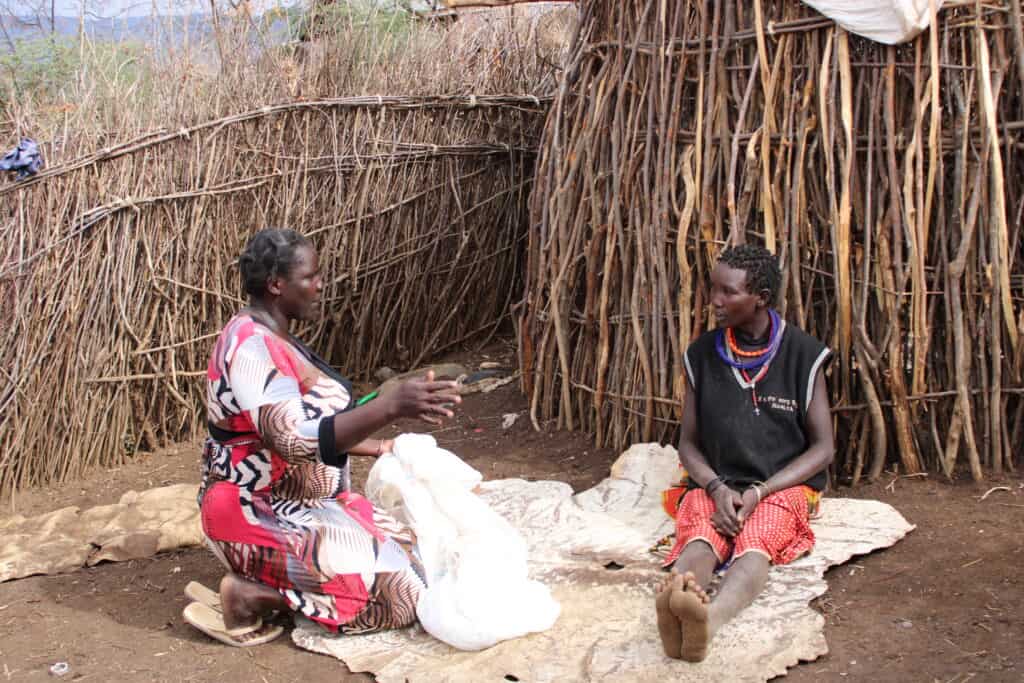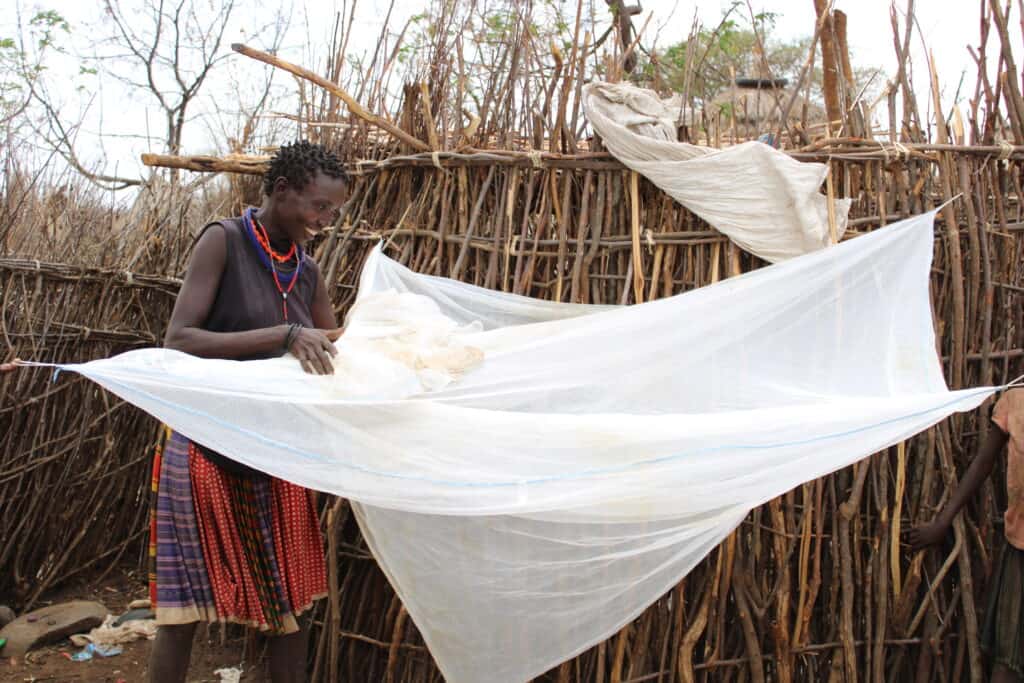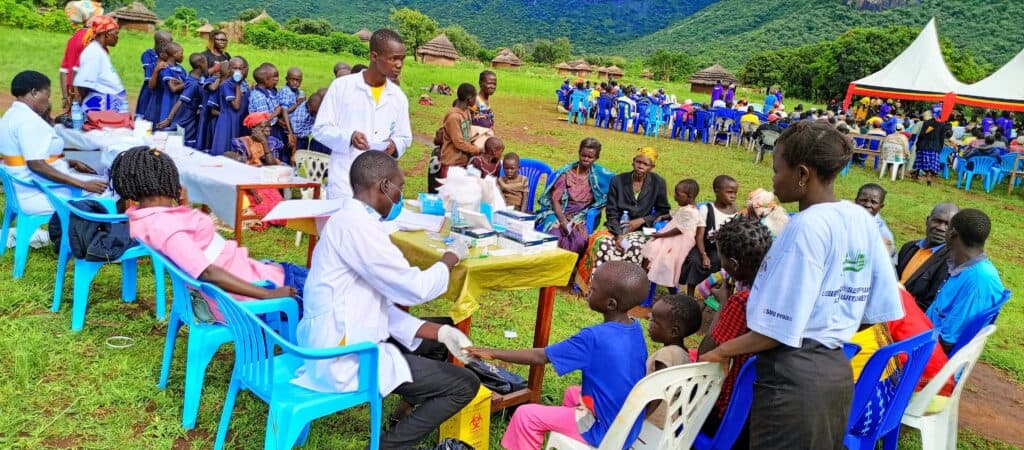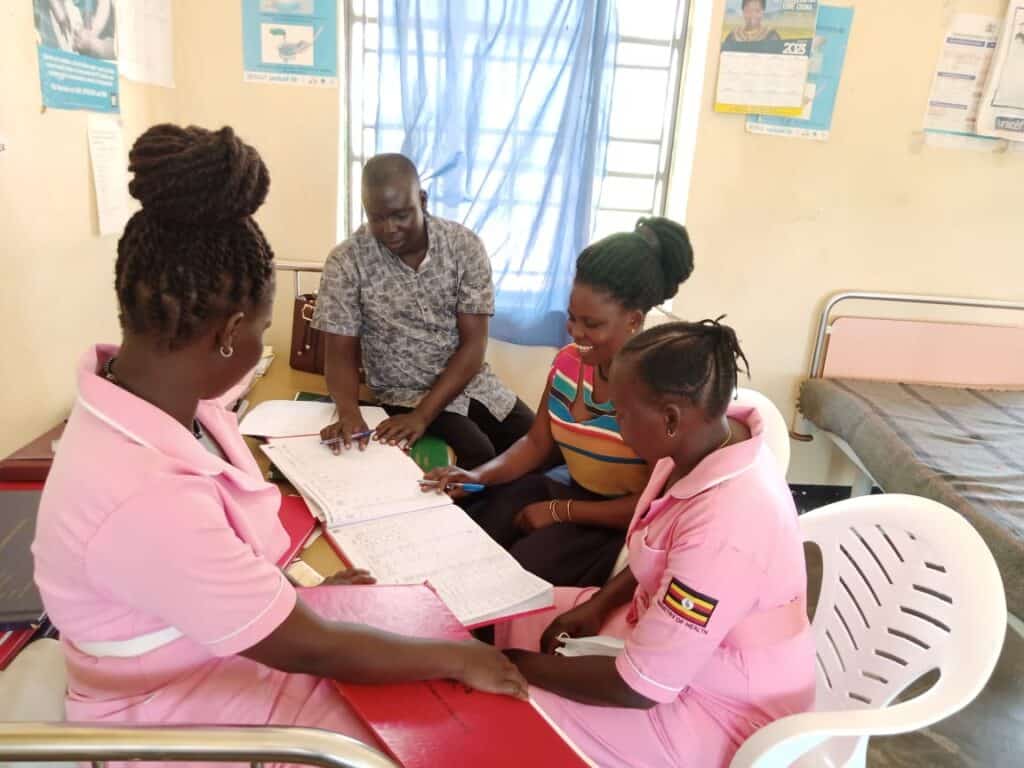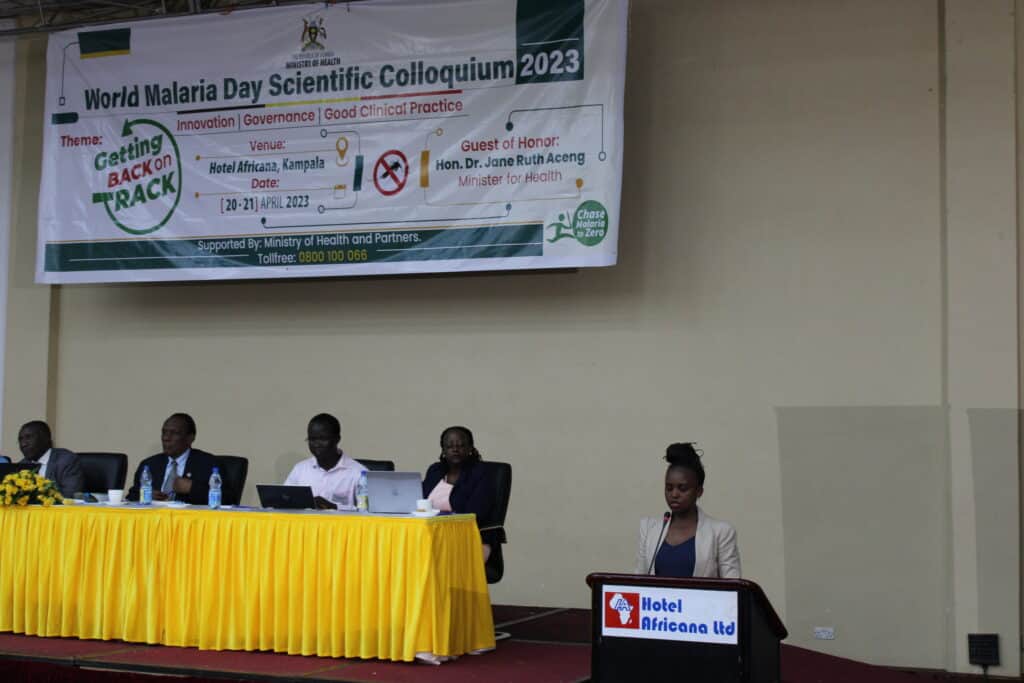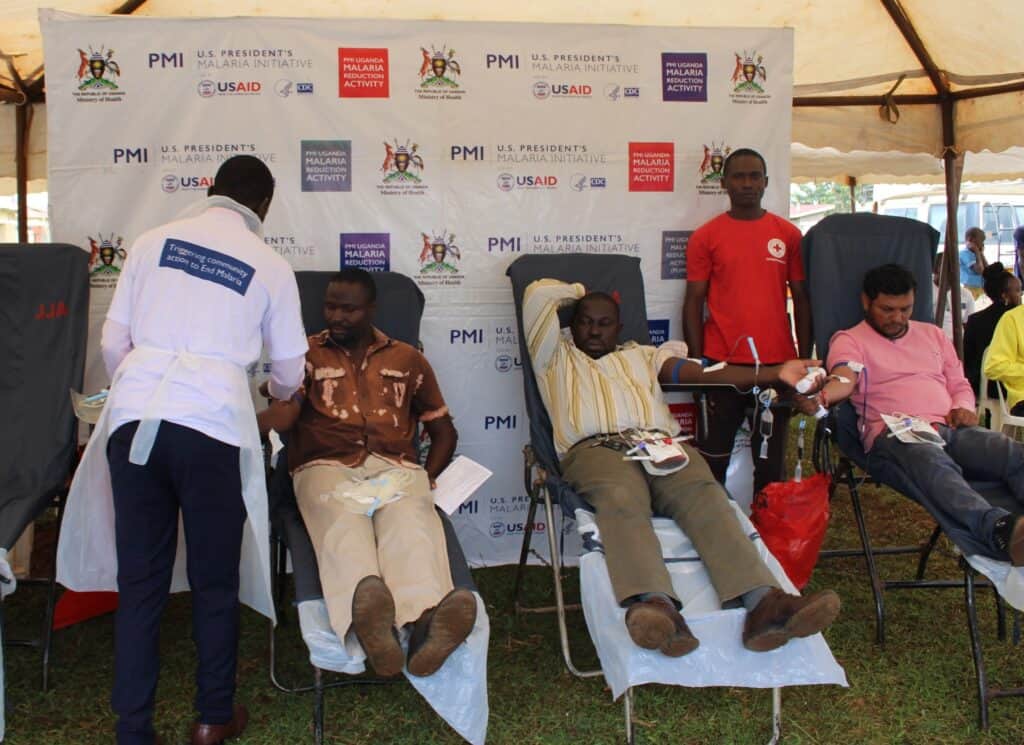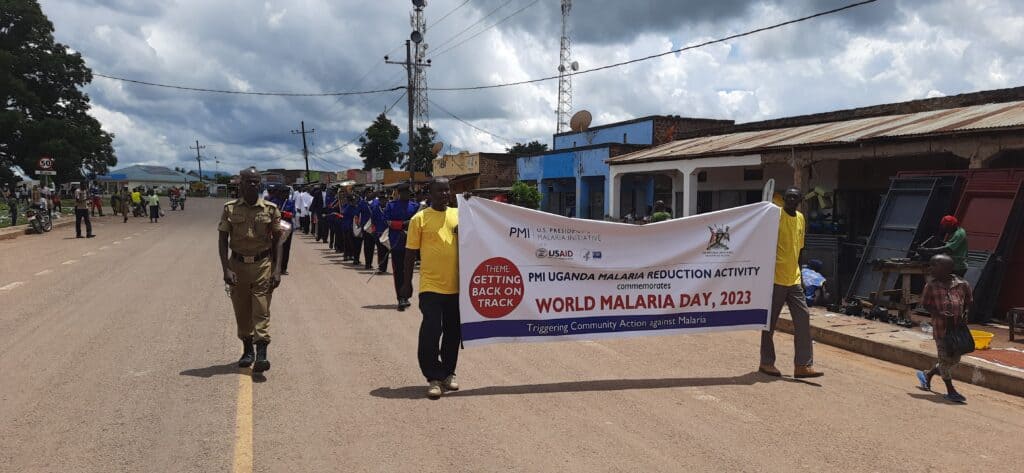This website uses cookies so that we can provide you with the best user experience possible. Cookie information is stored in your browser and performs functions such as recognizing you when you return to our website and helping our team to understand which sections of the website you find most interesting and useful.
Happy Hours Primary School students in Busoga Region sing about malaria prevention. Photo: Angela Kateemu.
World Malaria Day, April 25, is an annual occasion to raise awareness of and support efforts to end malaria. In Uganda, a country deeply affected by this deadly disease, the day is particularly significant. Here are highlights of the events that the JSI-led USAID President’s Malaria Initiative (PMI) Uganda Malaria Reduction Activity (MRA or the Activity) and its partners organized in the weeks before and on World Malaria Day 2023.
Community awareness events
These events in the five high-malaria burden regions (Lango, Acholi, Busoga, Karamoja, and West Nile) educated pregnant women, men, and young people about malaria prevention and the importance of early diagnosis and treatment. During these interactive sessions, health workers listened to the community and dispelled myths and misconceptions, such as the falsehoods that treated mosquito nets cause impotence and infertility, and that severe malaria can only be cured by a witch doctor or by exorcism. The Activity also distributed educational materials and engaged community champions to talk their experience overcoming malaria.
Test and treat outreach in malaria-high burden villages
During the week leading up to April 25, MRA, health facility, and district health office staff from all five regions set up camps in high-malaria burden villages to provide free screenings and distribute treated mosquito nets to pregnant women. A team of health care professionals tested community members and administered antimalarial medication to those who tested positive, ensuring they received the necessary treatment to interrupt the further spread of the disease. Additionally, the health workers, during community drives in town centers and markets, informed people about locally available prevention measures.
Malaria testing, treating, and reporting demonstrations
MRA collaborated with the National Malaria Control Division to demonstrate malaria testing in lower health facilities in the five regions. These demonstrations introduced and oriented health workers on the new guidelines for accurately diagnosing malaria, and emphasized timely testing for effective treatment and control. In addition to test and treatment demonstrations, the health workers were also mentored on patient data reporting and archiving, death reviews, and stock management.
Scientific colloquium
The Ministry of Health organized a conference in Kampala for MRA staff, health professionals, academics, and other malaria implementing partners. MRA staff made four presentations on household-level prevention strategies, treatment advancements, using malaria data and research findings for decision-making, and innovative interventions.
World Malaria Day National Event
Throughout five regions, MRA supported several activities on World Malaria Day itself. These included a town march to raise prevention and control awareness; a blood donation drive that emphasized the need for adequate blood supplies for malaria treatment; and school dramas, songs, and dances about malaria prevention.
The events leading up to and on Malaria Day were powerful reminders that malaria is not only a health problem; it’s also a social and economic challenge that requires efforts of all sectors. They were also a reminder that USAID PMI Uganda MRA and other implementing partners are committed to supporting the Ugandan government’s efforts to end the malaria epidemic.
Recap by Angela Kateemu, communications manager, PMI Uganda MRA.

